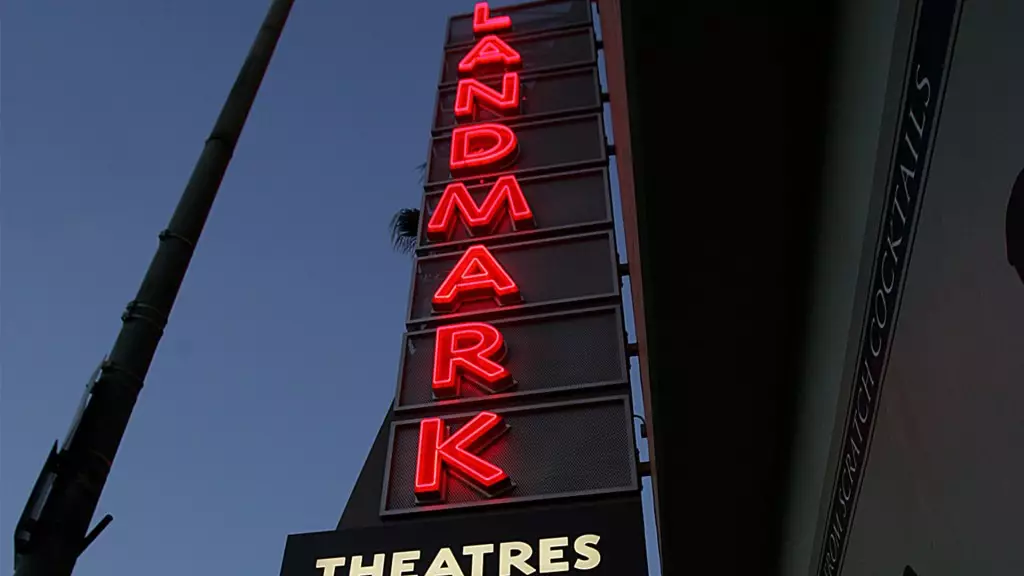The world of cinema is vast and intricate, comprising countless chains that often rise and fall with the tides of public interest, economic conditions, and industry shifts. One such victim of these tumultuous circumstances is Landmark Theatres, which has witnessed a staggering decline in value. A recent deposition from Charles Cohen, the owner of Landmark, has unveiled the full extent of the financial downturn linked to the COVID-19 pandemic, soaring interest rates, and the impacts of recent Hollywood strikes. This article delves into the key issues surrounding this decline, emphasizing the financial challenges, potential outcomes, and implications for the cinema industry at large.
COVID-19: Shuttering Cinemas and Altering Consumer Behavior
The COVID-19 pandemic acted as a catalyst for many businesses, but the film industry was particularly hard-hit. Landmark Theatres was no exception. The widespread closure of theaters and shifts in audience preferences toward streaming services drastically reshaped the cinematic landscape. Many of Landmark’s locations faced financial ruin during the lockdown periods, and though some have reopened, the audience that once flocked to theaters has been notably scarce.
Cohen, during his deposition, conceded that the pandemic “had shattered” the traditional model of moviegoing. Viewers became accustomed to enjoying their favorite films from the comfort of their homes, significantly decreasing foot traffic to theaters. This behavioral shift shows no signs of reverting, forcing Landmark and similar chains to adapt rapidly—either by enhancing in-theater experiences or expanding their offerings beyond arthouse films to attract a broader audience.
Interest rates currently sit at elevated levels, creating additional burdens for businesses that rely on financing to manage their operations. Within the deposition, Cohen expressed clear distress regarding heightening interest costs, which he stated were “too high.” These economic pressures have intensified the financial strain on Landmark Theatres, sending its fiscal health into a downward spiral.
Moreover, the legal complexities surrounding Cohen’s actions following the declaration of default have compounded the issues. Fortress Credit Corp, the lender which filed the litigation, highlighted moves made by Cohen to reassess his personal assets potentially in the wake of impending financial ramifications. Such maneuvers evoke suspicion regarding the management’s intent, raising questions about transparency in the “self-dealing” perceived by Fortress, which could further damage Landmarks’ reputation.
Hollywood Strikes: An External Attack
Adding further turmoil to the industry, the recent strikes in Hollywood have significantly curtailed film production, which is the backbone of theater operations. The absence of new releases left many cinema operators, including Landmark, suffering from dwindling ticket sales. Cohen indicated that these strikes, particularly the writer’s and actor’s strikes, resulted in a “turning off” of film production for over six months. This dramatic halt adversely affected attendance, of which Landmark was painfully aware, affirming that its theatres were “suffering.”
Yearning for a solution, the company needs a strategy to reinvigorate its offerings, possibly by collaborating with production companies to prioritize arthouse films or investing in exclusive screenings that draw audiences back to the theater. Only by aligning with evolving consumer trends can Landmark hope to revive its dying business model.
As Landmark Theatres attempts to navigate these treacherous waters, the company’s legal entanglements complicate any future resurgence. The imminent auction of properties—an essential part of Cohen’s default scenario—in combination with the $187 million personal loan guarantee looming over him embodies a dire predicament. Fortress Credit Corp’s motions to restrict Cohen’s asset management reflect a desperate bid to recover losses, but this legal battle may discourage potential investors and partners from becoming involved with the beleaguered chain.
Amidst these challenges, Cohen’s belief in a possible settlement could provide a glimmer of hope. If negotiations with Fortress could yield a mutually beneficial outcome, Landmark may regroup and rethink its strategies for recovery. However, the clock is ticking, and the outcome of the auction set for November 8 will dictate the chain’s future.
The decline of Landmark Theatres is a microcosm of the greater struggles facing the cinematic landscape in today’s world. From the transformative effects of the COVID-19 pandemic to the challenges of high interest rates and the fallout from strikes, it underscores vital lessons about adaptability, resilience, and the need for innovation in an industry that thrives on the collective experience of storytelling. With uncertainties still looming, the fate of Landmark Theatres remains precariously balanced on their ability to navigate these combined challenges and rekindle the public’s passion for cinema in a rapidly evolving environment.

